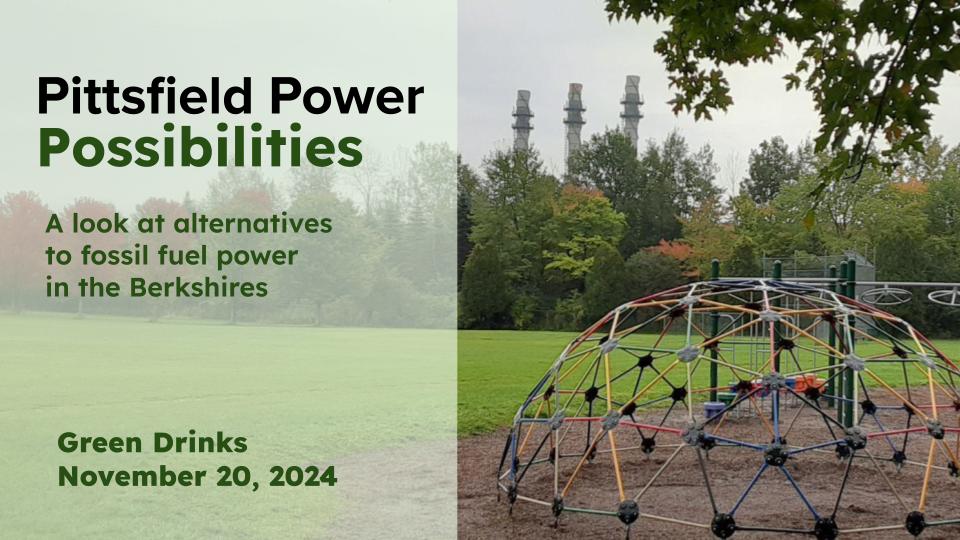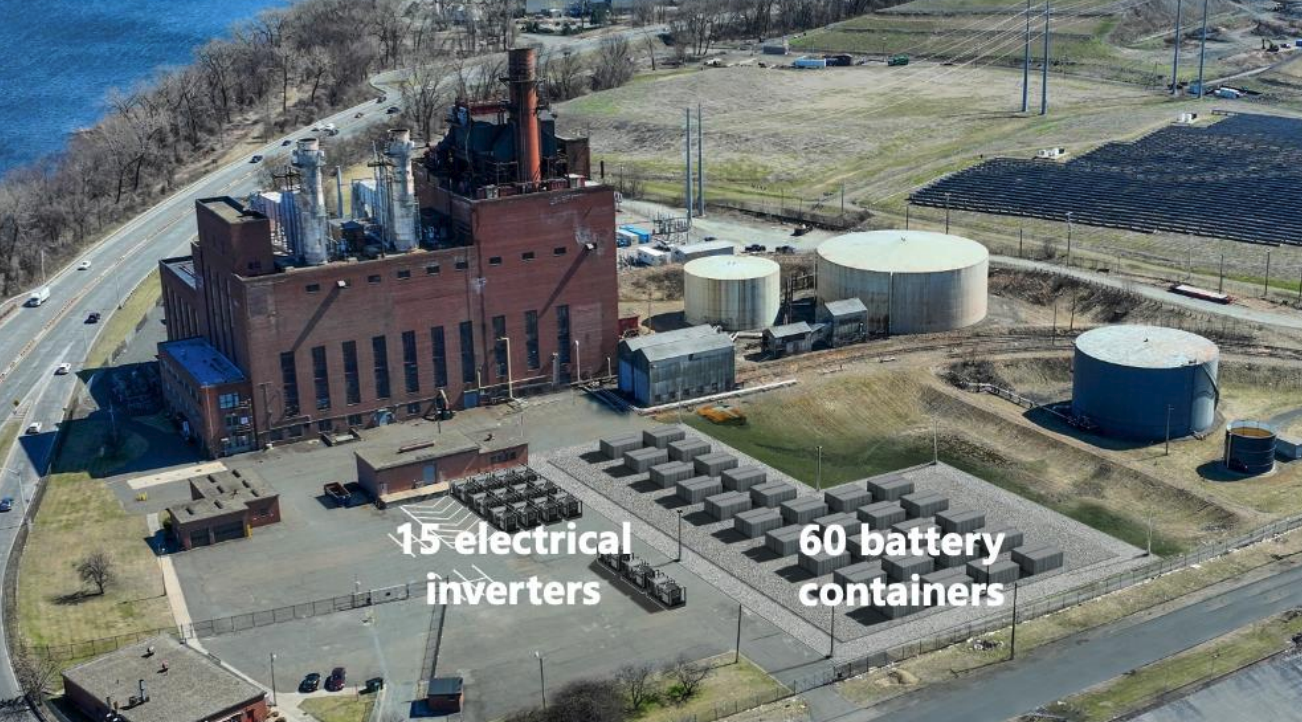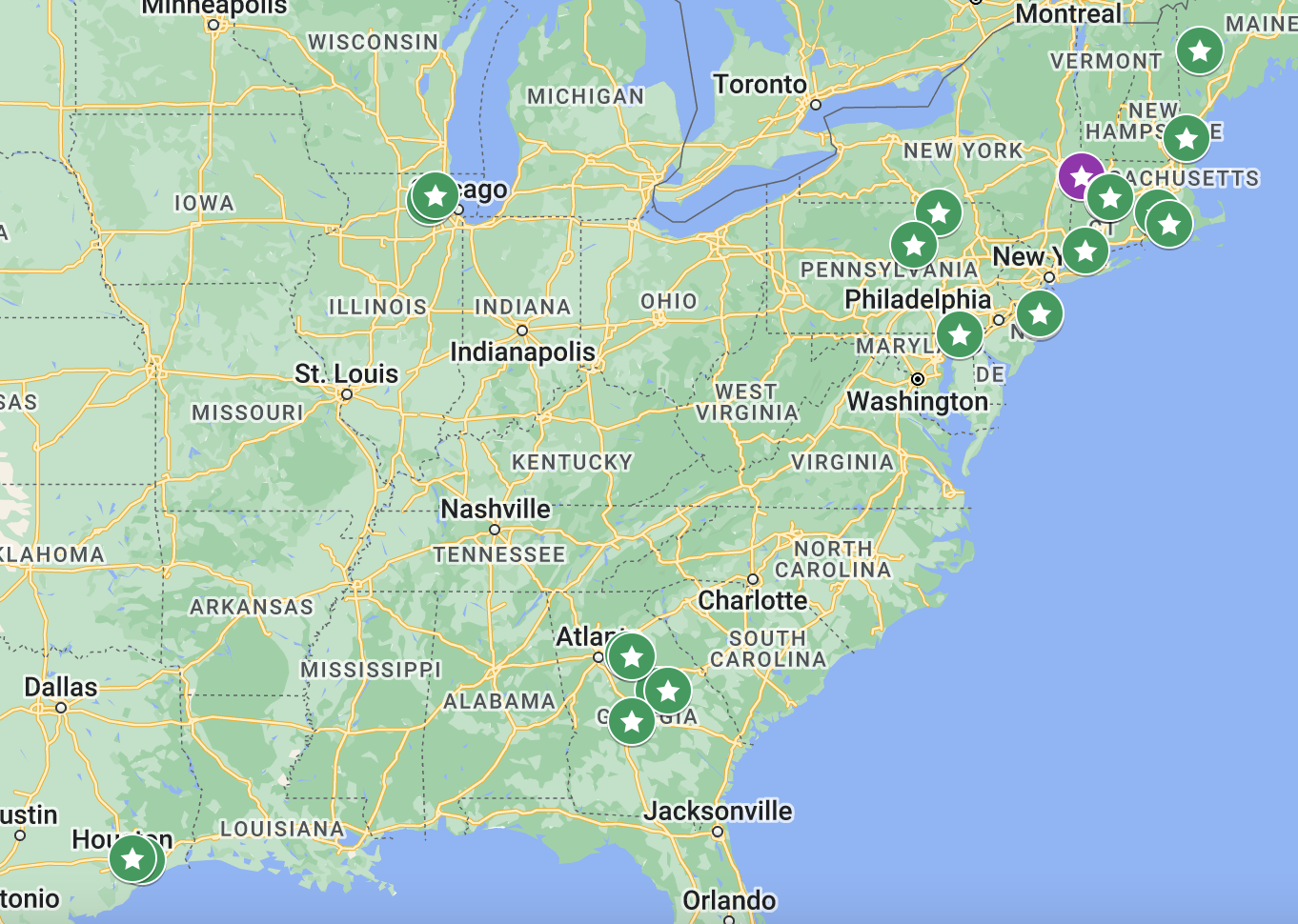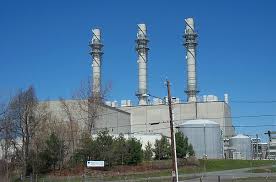
» BERKSHIRE CAMPAIGN » NEW PEABODY PEAKER
» WHAT ARE PEAKER PLANTS » CAMPAIGN RESOURCES » PEAKER REPORTS & NEWS
We believe that clean air is a right. No one should have to live in a community where their health is at risk simply from the air that they breathe. Therefore, we are demanding that peaking power plants convert to only renewable and clean alternatives.
November 2024 Update –
Thanks to everyone who came to our November Green Drinks Presentation!
» View the presentation here on YouTube!
• Pittsfield Power Possibilities: A look at alternatives to fossil fuel power in the Berkshires
We had a look at Pittsfield’s last peaker power plant, Pittsfield Generating, and the possible scenarios its transition off fossil fuels to battery storage and renewables. This is a furthering of the community conversation that started a couple of years ago out of concern for public health impacts of the plant’s emissions. This time around, we’re looking at the economic impacts of a depreciating fossil fuel plant in the heart of the city. Updating this facility to modern, clean tech peak energy solutions could be a boon to Pittsfield’s economic development plan for attracting clean tech industrial development, while also alleviating health impact to the EJ neighborhoods in which the plant resides. We have a look at possible transition scenarios and possibilities for funding for the City to partner in this transition.
— Slide Deck
— Recording of Presentation
• FFIO Funding Community Presentation, November 18, 2024 in Pittsfield
— Slide Deck
Berkshire Innovation Center recently hosted a community info event by the The Federal Funds & Infrastructure Office (FFIO). FFIO is the lead agency within the Healey-Driscoll Administration tasked with implementing a whole of government approach to ensuring the Commonwealth of Massachusetts can leverage the historic opportunities available for federal funding. This office may help determine future federal funding pathways to help the City partner with Hull Street to transition.
They host monthly virtual meetings through the Mass Federal Funding Partnership. » Register here
April 2024 Update –
Pittsfield Generating Community Input Survey
There are several ways we can transition away from Pittsfield Generating running an old fossil fuel peaker plant in the heart of our City, less than 1,000 ft. from Allendale School.
These include:
- Just close it down
- Shut down fossil fuel operations and transition to battery
- Shut down fossil fuel operations and transition to battery & solar
- Just add battery storage
- Re-develop the plant into a zero-emissions steam supplier for surrounding businesses
- Negotiate a grid interconnection plan with the plant owners so that a Municipal or Community storage or solar project can share its interconnection point, or grid interconnection can be transferred when the plant retires.
For more detailed information on these options, please see this page.
And please fill out our Community Survey; give us your opinion on the best option!
September 2023 Update —
A couple of years ago, we challenged the owners of three peaker power plants in Berkshire County to move away from fossil fuels. Your participation in stand-out protests, signatures on the petition, the support of organizations and businesses joining our coalition, and support from Boards of Health and health professionals brought the two companies that own these three Berkshire County plants to the table.
Cogentrix, the owner of the Doreen plant in Pittsfield, Woodland Rd. plant in Lee and another larger peaker in West Springfield took our challenge to heart. They met with us many times, and we connected them with energy analysts and other experts, and they drafted up a plan. They’ve shut down all three plants and are converting the West Springfield plant to solar & storage, as covered on the Sept. 11, 2023 Energy News Network article.
» View project information
It looks like a long wait during the grid operator interconnection study phase is coming to an end by the end of 2023, and the storage + solar plant is likely to come online by early 2025. Look for news of a formal announcement event in the spring of 2024.
An unexpected bonus in response to our ask, beyond the transition of the West Springfield plant, is that Cogentrix is now working on plans to transition ALL of their peaker plants across the US. That’s another 20+ fossil fuel power plants that will eventually come off line – because you spoke up for your community! 
Hull Street Energy, the owner of Pittsfield Generating, has also been meeting with us. 
Talks have been polite and cooperative, but so far, not productive. We’ve proposed alternative business models, and had them consult with analysts to investigate how they would work. Still, after each round, they deemed each plan unfeasible.
With consideration of any plan, there are degrees of feasibility. Some may be disastrous. Others may be just less profitable than the current business model. What is considered feasible can also come down to risk aversion. Cogentrix is willing to take the risk. Hull Street is not. So far, they’re opting to stick with the status quo and the heavy financial incentives it brings.
But there’s been a bit of a shake up. One of the executives we’ve been talking with has left, and two new folks are in his place, including one specifically assigned to oversight of Pittsfield Generating.
This is a chance to persuade fresh minds and win over new hearts. Stay tuned!
TAKE ACTION TODAY to PUT PEAKERS IN THE PAST:
If you’re an individual who agrees that we need to Put Peakers in the Past,
If you’re an organization or business that supports our campaign,
• WHY PEAKERS ARE A PROBLEM
Peaker plants are the electric generation plants that come online when all the baseline plants on the grid are maxed out. This most often happens during stretches of the hottest days of the year.
These Peaker plants are some of the oldest, least efficient, most emitting and most costly power plants Massachusetts. They emit greenhouse gasses like CO2, contributing significantly to the region’s greenhouse gas emissions, and local pollutant nitrogen oxide, a hazardous gas that poses several significant health risks, including asthma, cardiovascular disease and increased mortality rates from COVID. Pittsfield Generating, for example, accounted for over 15% of the city of Pittsfield’s total stationary emissions in 2018, despite only running for a few days out of the year.
More than 90 percent of the Peaker plants in Massachusetts are over 30 years old, with many over 50. And even now, a brand new one is being constructed in Peabody, MA. See Breathe Clean North Shore’s website.
* Want to see where other peakers are in the US?
Use Clean Energy Group’s interactive Peaker Map.
Just about all peakers are very close to or in Environmental Justice neighborhoods. Their most common time to run is during long bouts of hot, humid weather, when air quality in these heavily impacted neighborhoods is already dangerous.

• ALTERNATIVES TO PEAKER PLANTS
DEMAND RESPONSE
There are cleaner, cheaper alternatives to these plants that don’t pollute our air or cost nearly as much. The first alternative is happening already: demand response, or peak shaving. During times of peak demand, customers, especially those that use a lot of electricity, can save a substantial amount of money by reducing their electricity demand for a few hours. This is because avoiding energy use during peak demand lowers their supply rate across the board.
» Learn more about Demand Response and Peak Shaving from BEAT’s webinar
» Read about the Snohomish Co. Washington aggressive demand response program
GRID STORAGE (Clean Peak Standard)
Solar plus storage can be used to produce and store clean electricity for use by the grid (in front of the meter) during these peak times. Right next to the Doreen and Woodland Road plants, there is acreage where solar plus storage could be built.
»Pittsfield Generating Possiblities: The Transition to Clean Energy (slide deck)
» Learn more about BESS (Battery Energy Storage Systems)
And the Clean Peak Standard, the regulatory program for grid-scale storage in Massachusetts, allow for storage only, storage paired with off-site renewables, or storage paired with third party off-site renewables as options for feeding energy to the grid at peak. This allows sites with limited acreage like Pittsfield Generating to store energy while renewables in other locations are generating. This could be paired with solar on large scale rooftops, over brownfields, parking areas, transit corridors like alongside or over road or railways, etc.
» Learn more about the Clean Peak Standard from Clean Energy Group’s webinar
CONNECTED SOLUTIONS
There is also Mass Save’s “Connected Solutions” program that allows electric customers (behind the meter) to use battery storage in multiple ways:
– Demand Response – switching to stored energy instead of drawing from the grid at peak
– “Virtual Power Plant” – supplying stored energy to the grid at peak demand
– “Islanding” – supplying power to the building or other infrastructure to which it’s tied during outages (a bonus benefit of local resiliency for municipalities)
– Energy supply during off-generation hours, supplying power to the customer when their own solar or wind isn’t operational
All of these functions can be engaged whenever the customer desires and incentives for each kind of use can be combined for increased revenue and decreased pay-back period.
All these alternatives replace dirty, air-polluting power plants with clean energy that would cost electric ratepayers less to operate. When solar is appropriately placed on rooftops, over parking lots, brownfields and other already disturbed areas instead of clear cut forest land, it brings clean generation closer to the location of demand as well.
» Learn more about Connected Solutions from Clean Energy Group webinar
– Individuals who want to make sure to conserve energy during peak demand and sign up for Shave the Peak app from Green Energy Consumers Alliance — greenenergyconsumers.org/shavethepeak
(Short link for this page: https://tinyurl.com/BerkshirePeakerPlants)